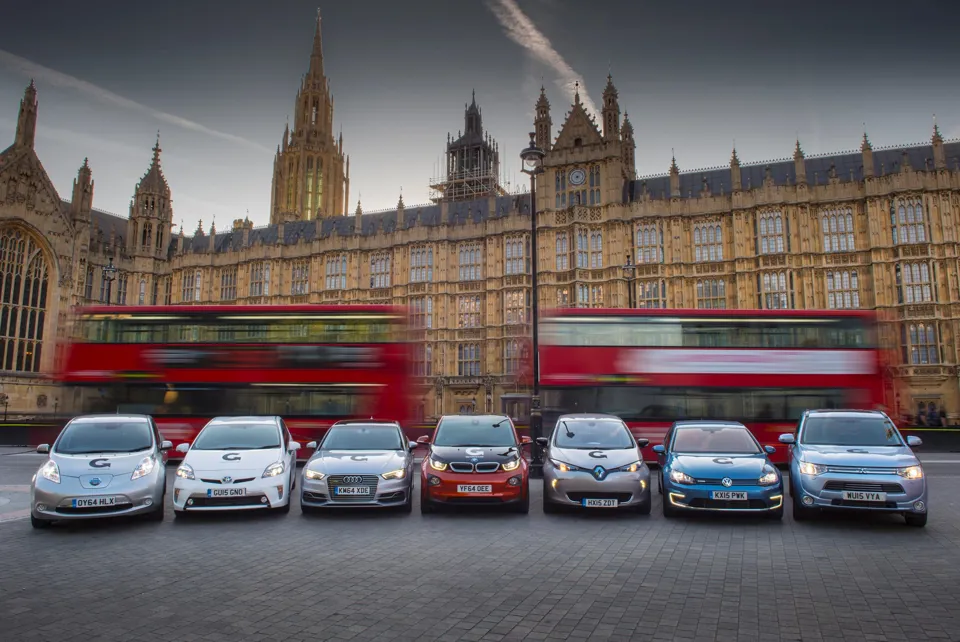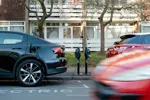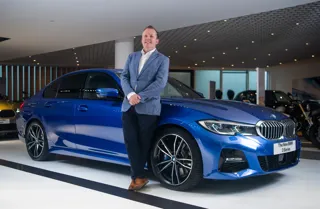New company car tax rates, which incentivise electric cars, have restored “much-needed confidence” and boosted orders for ultra-low emission vehicles (ULEVs).
However, question marks remain over delivery times due to a lack of availability, which is hindering uptake for some companies.
Lex Autolease, the UK’s largest leasing company, financing almost 400,000 cars and vans, told Fleet News that orders for pure electric cars had increased by 123% since the new benefit-in-kind (BIK) tax rates were announced.
Zenith reported an even bigger surge in pure electric vehicle (EV) orders, up 211%, while Alphabet and Total Motion both reported double digit increases.
Ashley Barnett, head of consultancy at Lex Autolease, said: “The number of orders we’ve taken for pure electric cars since July (when the new rates were announced – four weeks ago at time of writing), equates to a third of the total pure electric car orders placed in the previous six-and-a-half months.”
In the first seven months of the year, Lex Autolease took nearly 2,000 orders for pure electric cars – 6.35% of all pure electric car registrations in the UK during that period.
Hybrids Benefit Too
Hybrid powertrains have also benefitted from the new rates, with Zenith reporting a 114% uplift in orders.
Meanwhile, Alphabet has seen a 12% increase in the number of orders for pure EVs and a 31% increase for plug-in hybrids.
David Bushnell, principal consultant at Alphabet (GB), said: “We’re seeing businesses and drivers react (to the new rates) by placing increasing numbers of orders to lease battery electric and plug-in hybrid vehicles.
“As well as the 0% company car tax rate for EVs which grabbed the headlines, the clarification on BIK liability for all company vehicles until April 2023 was extremely welcome.”
Claire Evans, head of fleet consultancy at Zenith, told Fleet News that having “certainty” on tax rates has brought “much-needed confidence back into the fleet sector”.
This was reflected in overall company car orders for the leasing company increasing by 45% following the announcement.
In its long-awaited response to the review of company car tax, HM Treasury announced in July it was binning previously published BIK rates for 2020/21, in an effort to mitigate more accurate, and as a result higher, vehicle CO2 emissions shown in the Worldwide harmonised Light vehicle Test Procedure (WLTP).
Instead, it revealed two new BIK tables for company car drivers effective from April next year: one for those driving a company car registered after April 6, 2020, based on WLTP CO2 figures, and one for those driving a company car registered before the same date, based on NEDC-correlated CO2 figures.
No Better Time To Switch
Within the next two years, Jon Lawes, managing director at Hitachi Capital Vehicle Solutions, expects half of all new company car orders on his books to be hybrid or pure electric.
Currently, plug-in orders at the leasing company have a 17% market share, having increased from 10% in recent weeks.
Lawes believes there has been no better time to consider making the switch. “If you want an electric vehicle, the best way to have one is through a company car scheme – you haven’t got any of the risk. It’s a complete no-brainer,” he said.
“There is also a big benefit to the fleet operator as well, because, if there’s no benefit in kind, there’s no national insurance,” Lawes added.
Not everybody is reporting an uplift in orders, however, with some fleets waiting for lead times to improve and for a greater choice of plug-in cars due in the next few months.
Nick Hardy, sales and marketing director at Ogilvie Fleet, says there has been a “significant increase” in interest in EVs from fleets but, as yet, not the uplift in orders from drivers.
“We have seen a number of clients move quickly to introduce EVs on fleet choice lists as a result of the BIK changes and we expect an ever-increasing number of fleets asking about how we can help them build a policy that includes EVs,” Hardy said.
But, he added: “The availability of cars is a slight challenge right now. There are only a limited number of pure EV cars available and some of these are easier to get hold of than others.
“What we do know is that there is a massive imminent influx of new EV cars over the coming months. The sector is about to explode with options at various price brackets.”
It was a similar message from Arval UK, which said that to date it had not yet seen any sudden increase in orders for battery electric vehicles (BEVs) as a result of the HMRC announcement.
David Watts, fleet consultant at Arval UK, explained: “The truth is that it is probably too soon. This kind of change always takes a little while to filter through into the real world and the effect will have been even slower over the summer months. However, we expect to see orders start to pick up into Q4 of this year.”
“The real financial impact for drivers, we believe, is more likely to be realised in 2021 onwards, as a result of an increasing number of new BEVs being launched over the next 12-18 months that appear to very much fit the profile of the kind of BEV desired by mainstream company car drivers.
“The supply situation for these models is not yet clear but – if the cars are available in significant numbers – it could be the year that BEVs become a significant force in the fleet sector and the 0% tax rate could prove to have been a significant factor in this happening.”
Greater EV Choice
Pure EVs have generally been the domain of upper executive type choice bands and not for the lower bands in company car policies.
“That is about to change and we can see that over the next few months there will be plenty of choice for every grade of company car driver,” Hardy said.
Venson Automotive Solutions also says long lead times are impacting demand. Simon Staton, Venson director of client management, explained: “We believe drivers will be holding off, where practicable, selecting a new vehicle until early next year when there is more clarity on the manufacturer models available in 2020 and the likely lead times.”
Staton labelled lead times from some manufacturers for pure electric cars as “vague”.
“Some of the manufacturer order books are closed until 2020,” he said. “For others, models are being replaced/facelifted so there’s either no, or minimal, vehicle availability.”
Lead times from leasing companies for pure electric vehicles, seen by Fleet News, reveal some models have longer lead times than others.
The Kia e-Niro and Hyundai Ioniq EV, for example, could take up to 12 months to be delivered and the Jaguar I-Pace up to four months, while the Nissan Leaf and the Tesla Model 3 fare better, with a delivery time of up to 12 weeks.
Nissan national corporate fleet sales manager Adam Connelly struck an upbeat note on supply.
“We have production and supply of both Leaf and eNV200 – we can supply fleets now,” he told Fleet News.
Nevertheless, a group of MPs has pointed to an insufficient supply of EVs to meet consumer demand which, they believe, is one of the barriers to the uptake of ULEVs.
In a report published last month, MPs on the Science and Technology Committee claimed there is clear evidence in the UK, and internationally, that supply shortages could be partly due to “inadequate support for the ultra-low emission vehicle market from manufacturers and dealers”.
The report – Clean Growth: Technologies for meeting the UK’s emissions reduction targets (see page 70) – also highlights the lack of Government policies to deliver the net zero target by 2050 and recommends 10 steps the Government should take to meet this legally binding target.
Bring Ban Forward
They include a recommendation that the ban on the sale of new ‘conventional’ diesel and petrol cars, and vans is brought forward from 2040 to 2035, at the latest.
The committee also wants the Government to review how the market for ultra-low emission cars functions annually, to determine if there are sufficient incentives for manufacturers and dealers to drive the adoption of ULEVs.
The first review, it says, should be published before next year’s planned Spring Statement and it should consider introducing “minimum sales mandates” on manufacturers to help drive down lead times.
Carmakers, have blamed a mix of a shortage of batteries and the need to convert production facilities as the reasons for long lead times, but they are investing heavily to ensure future supply meets demand.
Availability of lithium – a key ingredient for battery production – isn’t an issue though: shares in lithium producers have been falling due to oversupply of the raw material, which is pushing down prices (from $14,600 per tonne in Q1 to $10,000 in Q3).
Supply is expected to outpace demand for the rest of 2019, due to new mines in Australia and lower electric car demand in China following cuts in subsidies.
Winners and Losers
Leasing companies are also working with fleets to help them review fleet policies to ensure they take advantage of the new rates.
Ian Hughes, managing director at Zenith, said key to driving uptake in ULEVs is helping the driver understand the tax benefits they can obtain for these vehicles, both in a company car and as a salary sacrifice.
“We are working with customers to reignite the benefit value company car and all-employee schemes can offer their employees,” Hughes said.
Hardy believes it is imperative suppliers adapt to meet the challenges and opportunities the new tax regime offers the fleet industry.
“There is no doubt in my mind that we are about to see a huge shift to electric vehicles in the company car market, driven by these BIK changes, in part, but also as an integral part of the Road-To-Zero strategy,” Hardy said.
“These enormous moments of change are rare in fleet and mean that leasing companies need to adapt and evolve in a way that they haven’t had to for a number of years. There will be winners and losers.”






















Login to comment
Comments
No comments have been made yet.